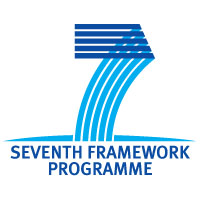- European Plastics Converters (EuPC) AISBL - Belgium,
- Fraunhofer-Gesellschaft zur Förderung der angewandten Forschung e. V. - Germany,
- Associazione Nazionale Costruttori Di Macchine E Stampi Per Materie Plastiche E Gomma - Italy,
- Dentis Srl - Italy,
- Machinefabriek Otto Schouten Bv - Netherlands,
- Extricom GmbH - Germany,
- S+S Separation And Sorting Technology - Germany,
- Smithers Rapra and Smithers Pira Limited - United Kingdom,
- The University of Exeter - United Kingdom,
- Comité Européen de Normalisation - Belgium,
- Aliplast Spa - Italy
The goals of the SuperCleanQ project are to develop quality control and quality assurance tools and procedures for plastics recycling processes targeted at food contact applications to enable SMEs to conform to Commission Regulation EC 282/2008 on recycled plastic materials and articles intended to come into contact with foods. The tools will be applied to a new process for the recycling of coloured and layered PET into food contact applications that cannot be processed by current PET recycling facilities, a resource worth up to €700 million per annum. The project results will accelerate the development of new recycling processes for the wider food contact materials market and provide quality assurance for converters and end-users of recycled products applications for food contact thereby overcoming barriers and expanding this high value recycling market. There is an estimated 7.7 million tonnes of plastic that is not recycled in Europe, which is mostly packaging, that could be if technology and infrastructure were in place to do so. The value of this resource in food contact packaging could be up to €7.7 billion. The market demand is there as shown by the current price of recycled PET for food contact applications which is equal to that of virgin PET. This pricing is driven by the strong demand for food contact recyclates from packaging end-users, especially the supermarkets, that are concerned about their corporate image and promoting their environmental responsibilities. The advancements over the state of the art are: A post-market challenge test for validation of recycled food contact materials with 100% reliability A post-process validation quality protocol for assuring the efficacy of plastics recycling processes for food contact applications with 100% reliability Development of a process to recycle the 700,000 tonnes per year of currently unrecyclable coloured and layered PET that cannot be processed by existing PET recycling facilities for food contact packaging In-line monitoring for process quality control to indentify contaminants from oxo-degradable additives, biodegradable plastics, bis-phenol A, and non-food contact compliant levels of chemical contamination To meet the Packaging and Packaging Waste Directive 94/62/EC, and improve sustainability, Europe must reuse waste plastics in large high value applications. The largest and highest value market for recycled plastics is packaging, especially in food contact applications; EC 282/2008 makes this possible, SuperCleanQ will enable SMEs to take advantage of this market opportunity.
Want to analyze based on this project via our analysis tool? Analyze this project
Knowledge Gaps
Degradation
Environmental fate and behavior of plastic
Commercial-related uncertainties





